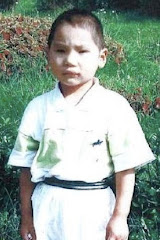This is the last thing we need for our dossier to go to China!
When God calls you must be willing to say "Here I am send me!"
Sometimes it takes a leap of faith accepting that He will provide!
You never know the blessings you may receive!
"AND WHOEVER WELCOMES A LITTLE CHILD LIKE THIS,
IN MY NAME, WELCOMES ME." Matthew 18:5
ADOPTING A CHILD WON'T CHANGE THE WORLD,
BUT FOR THAT CHILD, THE WORLD WILL CHANGE.
Sometimes it takes a leap of faith accepting that He will provide!
You never know the blessings you may receive!
"AND WHOEVER WELCOMES A LITTLE CHILD LIKE THIS,
IN MY NAME, WELCOMES ME." Matthew 18:5
ADOPTING A CHILD WON'T CHANGE THE WORLD,
BUT FOR THAT CHILD, THE WORLD WILL CHANGE.
Wednesday, February 20, 2008
I-171H is Approved!!!
We received an email today from Yakima (in response to my pestering) that our I-171H was approved on 2-11-08 and we should be getting it any day in the mail!!!
Cultural Norms and Accepted Practices
China Babies is an agency that does research on children being adopted from China or those already home. Here is a link to their site China-Babies. They do research all over China and do it in a very ethical manner. They have some very good points about cultural norms and accepted practices in the Chinese culture.
The following is from one of China-Babies' newsletters.
"Sometimes we hear discussions and rumors about folks who are scared to death of 'making the SWI's mad'. These stories probably originate from hearing about people who have tried to pry information out of orphanage staff or Directors without realizing the ramifications of how their methods are perceived or accepted.
Dealing with China, Chinese people, and Orphanage System workers who operate in a communist country is no simple matter. If one takes a 'Western' approach in dealing with them, or tries to pry into their affairs un-invited, this is asking for problems.
I am half Chinese and come from a second generation Chinese American Family. We have relatives and ties in China, and we are very aware of the cultural and communicative factors involved in dealing with Chinese that many in Western societies are often ignorant of.
We are careful to employ several critical elements when in pursuit of research and information for your family, for these very reasons.
To begin with, our researchers in China consists of Chinese Nationals who not only understand Chinese culture and the appropriate way to interact, but they are also working inside the Adoption System. They are familiar with the protocols, Directors, and Staff throughout the country, and when asking for permission to compile information and access records, they are not considered outsiders or strangers.
If an American, or even a Chinese who was not involved in the Adoption System, were to phone up an orphanage Director and request information, this would obviously receive a vary different reaction.
On top of that, our researchers observe Chinese cultural norms and accepted practices, some of which are outlined here:
1. Mianzi (Face)
The idea of shame, usually expressed as 'face' could be loosely defined as the 'status' or 'self-respect' in Chinese. It is the worst thing for a Chinese to lose face. We do our best to never insult, embarrass, shame, yell at or otherwise demean a person. Neither is it a good idea to try to prove Chinese wrong or shout at them in public.
We never make demands. We find we get much better results by calmly explaining the situation and requesting assistance politely in correcting the problem. By doing this, our host can offer an act of friendship rather than "losing face" by giving in to a demand. Most Chinese will go out of their way to help if it is presented correctly.
2. Guanxi (Relationships between People)
The fundamental glue that has held Chinese society together is the concept of guanxi, relationships between people. It is very important for the Chinese to have good relationships.
3. Keqi
Keqi not only means considerate, polite, and well mannered, but also represents humbleness and modesty. The expression is most often used in the negative, as in buyao keqi, meaning 'you shouldn't be so kind and polite to me,' or 'you're welcome.'
4. Greetings and Introductions
It is important when starting or opening a greeting for the most senior person to introduce themselves and then the next senior person, thus working down the rank in your company or organization.
Even when Chinese business people visit Western countries, they will mostly walk in the room with the most senior person leading the party. This custom is a matter of respect and honor, these two words are probably the most important in Chinese culture. Normally when you are shaking the hand of a Chinese official or business person it is polite to slightly bow your head forward, but not your whole body.
Chinese prefer to formally introduced to someone new. We always stand up when being introduced and remain standing throughout the introductions.
Shaking hands in an affirmative manner is wisely accepted and com practice in the Chinese business world.
We use both hands when presenting business cards and ensure the writing faces the person to whom we are presenting our card. Cards should also be received with both hands.
We do not immediately put the card in a pocket or bag - as this is considered rude. When seated, we often place the cards on the table and wait for an appropriate time to put them away.
5. Social distance, Touching & Gestures
The Chinese do not like to be touched, particularly by strangers. This is an interesting point to note, as Westerners often hug, back slap or touch peoples arms. Chinese, however, generally don't have the same sense of personal space that North Americans do. It's not unusual for Chinese people to almost press up against you while speaking to you.
Other gestures which can be considered rude are:
Pointing with the index finger; it is better to use the open hand instead.
Using the index finger to call someone; it is more polite to use the hand with fingers motioning downward as in waving.
Snapping fingers.
Showing the soles of shoes.
Whistling.
6. Eye Contact
We make an appropriate amount of eye-contact with our business partners during communications. Staring or absence of eye-contact can be considered impolite.
7. Dining Etiquette
Chopsticks should not be played with during a meal (for example banging them on the table), used for pointing or left standing up in a rice bowl.
The socially-acceptable method for eating rice is to bring one's bowl close to one's mouth and quickly scoop the rice into it with one's chopsticks, but simply lifting portions of rice to the mouth from the bowl held in the other hand is also acceptable.
8. Gift Giving
If invited to a family party, small gifts like wine, tea, cigarettes, or candies are appropriate. Also fruit, pastries, and flowers are a safe choice.
Wedding gifts and birthday gifts for the aged are always sent in pairs for the old saying goes that blessings come in pairs. The number Four reads like death in Chinese, this it is avoided.
Clocks are also in-appropriate, as it sounds like attending other's funeral. The colors black and white are connected with death and sorrow, so should avoided.
It is best to wrap gifts, but avoid using white paper as it symbolizes death. Red and gold are best.
When receiving gifts from the Chinese, we do not open them unless they insist.
9. Meeting Times
Chinese usually tend to come a bit earlier to show their earnestness. It is not regarded as being late if one shows up to a meeting within 10 minutes of its scheduled time.
10. During Meetings
When entering into business negotiations, verbal communications are enough and we avoid using to many gestures.
It is important to not take the Chinese nod for agreement; it's only a sign that they are listening attentively.
If a Chinese person gives a compliment, it is polite to deny it graciously. Modesty is highly valued in China."
They go on to say:
"As with everything we do, your privacy and the privacy of your child is our highest concern. We maintain strong relationships with the Directors and Staff of the SWI's and are careful not to do anything that would jeopardize those relationships. We make every effort to ensure the accuracy of the research we conduct, and often cross-check facts multiple times. Anyone who has dealt with the staff of Chinese orphanages will be able to attest to why this is so important.
We hope this has helped you to understand why we have been so effective in securing information for hundreds of families over the years."
New Information on our Sons!
We found out today that both of our sons are at the Dalian SWI and not in foster care. China-Babies has permission from the Dalian SWI to get some more information about our sons and get some new pictures! So hopefully in the next month we will have more information about them. We can hardly wait!!!
On the I-171H note we are still waiting for it to get to us! Please say your prayers that it comes quickly so our dossier can get to China!
Tuesday, February 5, 2008
I-171H
We are still waiting for our I-171H !!! I emailed the Yakima CIS office and received a reply that it would still be a couple more weeks but that it is in the final phase, whatever that means. I am trying to relax about it but that is so hard to do!!!!!
Subscribe to:
Comments (Atom)






